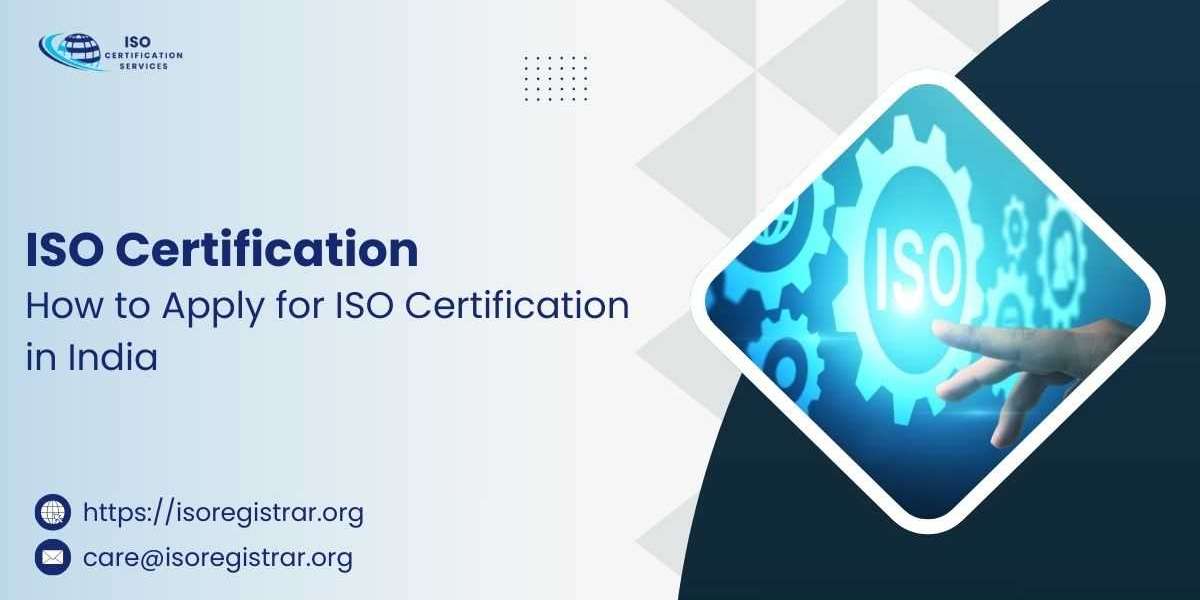ISO Registration is an internationally recognized standard that ensures your business meets global benchmarks for quality, safety, efficiency, or sustainability. It is an essential step for businesses in India looking to enhance their credibility, improve operations, and gain customer trust. This guide explains the application process for ISO certification in simple terms.
What is ISO Certification?
The ISO (International Organization for Standardization) is a global body that develops standards to ensure quality, safety, and efficiency across various industries. ISO certifications, such as ISO 9001 (Quality Management), ISO 14001 (Environmental Management), and ISO 27001 (Information Security), are widely recognized and beneficial for businesses of all sizes.
Types of ISO Certification
ISO certification is categorized into various standards, each designed to improve specific aspects of a business’s operations. Below is a detailed explanation of the most common types of ISO certifications:
1. ISO 9001: Quality Management System (QMS)
This is one of the most widely recognized and implemented ISO standards globally. It focuses on ensuring that an organization consistently delivers high-quality products and services to meet customer expectations.
Key Features:
- Enhances customer satisfaction by delivering consistent quality.
- Establishes a systematic approach to managing processes and operations.
- Encourages continual improvement to adapt to changing customer needs.
- Helps in identifying and mitigating risks in quality management.
Applicable Industries:
All industries, including manufacturing, healthcare, IT, education, and more, benefit from ISO 9001 certification.
2. ISO 14001: Environmental Management System (EMS)
ISO 14001 is designed to help businesses minimize their environmental impact. This standard is crucial for companies seeking to adopt sustainable practices and reduce their ecological footprint.
Key Features:
- Promotes efficient use of resources, including energy and water.
- Encourages waste reduction and recycling initiatives.
- Helps businesses comply with environmental laws and regulations.
- Improve reputation among environmentally conscious consumers and stakeholders.
Applicable Industries:
Industries such as construction, energy, manufacturing, and agriculture that have significant environmental impacts benefit the most from this certification.
3. ISO 45001: Occupational Health and Safety Management System
ISO 45001 focuses on workplace safety and employee well-being. It aims to reduce workplace risks and create a safe working environment for employees, contractors, and visitors.
Key Features:
- Identifies potential hazards and establishes control measures.
- Reduces workplace accidents and illnesses.
- Improves employee morale and productivity by fostering a safe environment.
- Demonstrates a company’s commitment to occupational health and safety.
Applicable Industries:
Industries with high-risk environments, such as construction, mining, manufacturing, and logistics, commonly implement ISO 45001.
4. ISO 27001: Information Security Management System (ISMS)
ISO 27001 is a crucial standard for organizations handling sensitive information. It focuses on protecting data from security breaches, cyberattacks, and unauthorized access.
Key Features:
- Establishes a framework to protect information confidentiality, integrity, and availability.
- Reduces the risk of data breaches and cyberattacks.
- Builds trust with customers and partners by demonstrating robust data security.
- Ensures compliance with legal and regulatory requirements for data protection.
Applicable Industries:
IT companies, banks, healthcare organizations, and government agencies benefit significantly from ISO 27001 certification.
5. ISO 22000: Food Safety Management System (FSMS)
ISO 22000 is designed for organizations involved in the food supply chain. It ensures food safety and hygiene standards are met at every stage, from production to consumption.
Key Features:
- Identifies and mitigates food safety risks.
- Ensures compliance with food safety regulations and guidelines.
- Builds consumer trust by demonstrating a commitment to food safety.
- Enhances efficiency in food handling, processing, and distribution.
Applicable Industries:
Food manufacturing, processing, packaging, transportation, and retail industries require ISO 22000 certification.
6. ISO 50001: Energy Management System (EnMS)
ISO 50001 helps organizations optimize their energy use and reduce energy consumption. It is especially relevant for companies looking to adopt energy-efficient practices and reduce operational costs.
Key Features:
- Provides a framework for improving energy efficiency.
- Reduces energy costs and greenhouse gas emissions.
- Encourages the adoption of renewable energy sources.
- Helps businesses meet energy-related legal and regulatory requirements.
Applicable Industries:
Energy-intensive industries such as manufacturing, transportation, utilities, and construction benefit significantly from ISO 50001 certification.
Why is ISO Certification Important?
- Builds Trust: Customers and stakeholders are more likely to trust certified businesses.
- Enhances Credibility: Certification signals adherence to global standards.
- Improves Processes: It promotes efficient operations and reduced waste.
- Facilitates Market Expansion: ISO certification is often required for international deals or tenders.
- Boosts Customer Satisfaction: By meeting quality standards, businesses provide better products or services.
Step-by-Step Guide to Apply for ISO Certification in India
- Visit the Official ISO Registration Portal: Open the official website for ISO registration to begin the process.
- Fill Out the Registration Form: Provide accurate details about your business, such as its name, address, type, and operational information.
- Submit the Registration Form: Double-check the information entered and click submit to proceed.
- Complete the Payment: Pay the registration fee using your preferred payment method, such as credit card, debit card, net banking, or UPI.
- Upload Required Documents: Submit all necessary documents, such as proof of business, address proof, and any other documentation requested during the process.
- Executive Contact for Processing: An ISO representative or executive will contact you to guide you through the next steps and verify the provided details.
- Verification Process: Your submitted details and documents will undergo a thorough verification process to ensure compliance with ISO requirements.
- Receive ISO Registration Certificate: Once the verification is completed, your ISO certificate will be generated and sent directly to your registered email address.
Tips for Successful ISO Certification
- Start Early: Prepare well in advance to ensure a smooth process.
- Engage Employees: Train staff and involve them in implementing ISO practices.
- Hire Consultants: If needed, hire an ISO consultant to guide you through the process.
- Stay Organized: Maintain detailed documentation for easier audits.
- Focus on Continuous Improvement: ISO certification is about ongoing enhancement, not just compliance.
Suggested read: How to get ISO(9001) certification process in India?
Conclusion
ISO certification in India is an essential step for businesses seeking to improve quality, gain customer trust, and access global markets. The process may seem complex, but with proper preparation and guidance, it becomes manageable. Following these steps will help you achieve ISO certification and set your business on the path to success.








